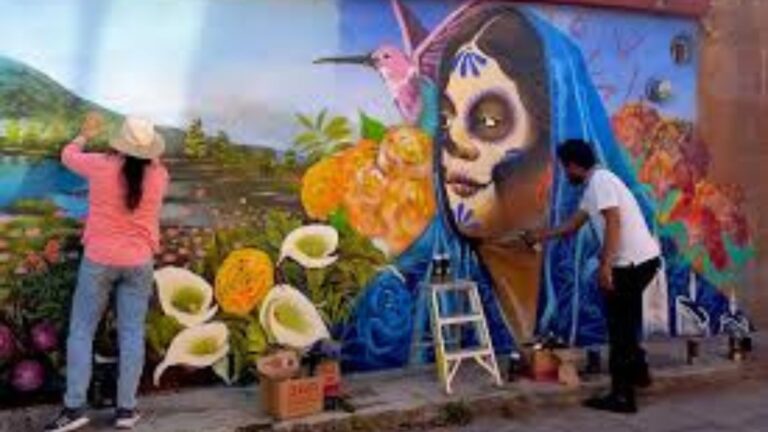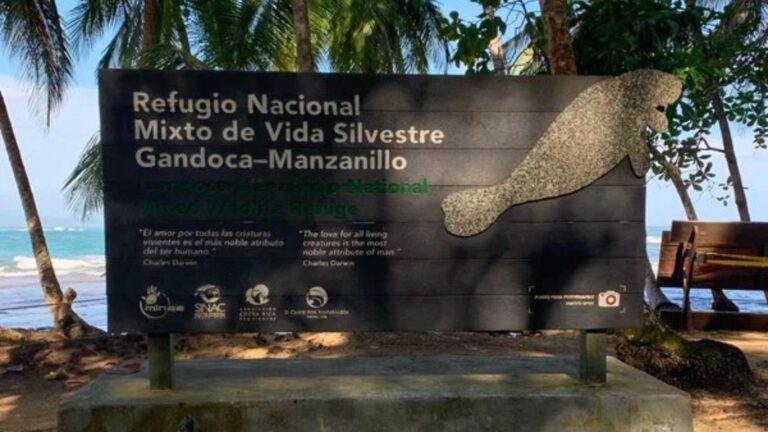Juan Rafael Mora Porras stands out as one of the central figures in Costa Rican history, primarily remembered for his role as President of the Republic and as the leader during one of the country’s most significant episodes: the National Campaign against the filibusters in 1856-1857. His presidency was marked by important reforms and the strengthening of the nation-state, but it is his leadership in defending national sovereignty against the invasion led by the American adventurer William Walker that cemented his legacy as a national hero.
Under his leadership, Costa Rica not only successfully repelled the filibuster threat but also strengthened its sense of national identity and demonstrated its ability to unite forces in defense of its territory and democratic principles. Mora Porras symbolizes courage, determination, and patriotism, becoming a lasting symbol of the Costa Rican spirit. His leadership during the National Campaign is a testament to his importance in consolidating Costa Rica’s independence and sovereignty, and his legacy endures as a source of inspiration and pride for the Costa Rican people.
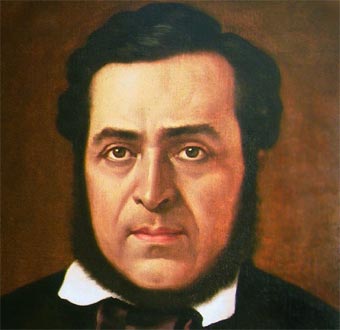
1. Context Before Mora Porras’s Presidency
Before Juan Rafael Mora Porras’s presidency, Costa Rica in the 19th century was characterized by a series of political and social transformations that would lay the foundation for its later leadership. After gaining independence from Spain in 1821, the country was in a process of consolidating its political institutions and defining its national identity. During this period, Costa Rica experienced various forms of government, including membership in the First Mexican Empire and later the Federal Republic of Central America, before asserting itself as a sovereign republic.
The political landscape of Costa Rica at the time was marked by relative stability compared to other Central American countries, although not without internal and external conflicts. The country’s economy, primarily based on agriculture, was beginning to diversify with the rise of coffee as a major export, contributing to economic and social development. This economic growth enabled improvements in infrastructure, education, and other essential services, although social inequalities and land distribution remained ongoing issues.
Social conditions, on the other hand, reflected a society in transition, with a growing urban middle class and a rural population still facing significant challenges. Debates on education, economic development, political autonomy, and national sovereignty were recurring themes in public discourse.
In this context, Juan Rafael Mora Porras emerged as a leader capable of navigating the complexities of the era, pushing reforms aimed at modernizing the country and defending its independence. His presidency would come at a crucial moment, where the need for strong, visionary leadership became increasingly apparent in the face of internal and external threats to Costa Rica.
2. Rise to Power
Paths to the Presidency
Before becoming an iconic figure in Costa Rican history for his role in the National Campaign against the filibusters, Juan Rafael Mora Porras had a political and personal trajectory that led him to the presidency of the country.
Born into a family with influence and resources, Mora Porras became involved in Costa Rican politics and business from a young age. His family was well-established in trade and politics, providing him with a solid platform for his career. Before assuming the presidency, Mora Porras held various public offices and played an active role in Costa Rican politics, allowing him to build a significant support network.
Juan Rafael Mora Porras’s election as President of Costa Rica in 1849 was not an isolated event but rather the result of his growing influence in the political and social circles of the country. His leadership and vision for Costa Rica’s future resonated at a critical time in the country’s history when it sought to strengthen its independence and sovereignty.
The circumstances surrounding his election must be understood within the context of the dynamic political landscape of the time, where liberal and conservative factions were fighting to influence the country’s direction. Mora Porras, with a progressive vision focused on economic development and state modernization, succeeded in consolidating broad support, which led him to the presidency.
As president, Juan Rafael Mora Porras would implement a series of significant reforms that would transform Costa Rica, including efforts to improve education, infrastructure, and the economy. However, it would be his leadership during the National Campaign against the filibusters that would define his legacy, highlighting him as a national hero in defending Costa Rican sovereignty.
For a detailed understanding of his rise to power and the circumstances of his election, it is recommended to consult historical sources and specialized biographies that provide an in-depth analysis of this period in Costa Rican history.
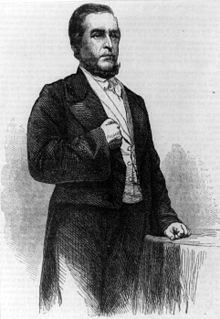
3. Internal Policies During His Presidency
During his presidency, Juan Rafael Mora Porras implemented a series of significant economic and social reforms aimed at modernizing Costa Rica’s economy and improving the social conditions of its population. These measures focused on various key sectors, including infrastructure, education, and the economy, contributing to the development and modernization of the country.
Economic and Social Reforms
Mora Porras recognized the importance of coffee as an economic engine and took steps to boost its production and export. This included improving cultivation techniques and expanding the land dedicated to coffee farming. Additionally, he focused on the development of critical infrastructure to facilitate trade, such as the construction of roads and improvements to the port of Puntarenas, which was essential for coffee export.
Social reforms under Mora Porras were also significant. He worked to improve education by promoting the construction of schools and increasing access to education for all Costa Ricans. These measures sought not only to elevate the educational level of the population but also to foster a more egalitarian society.
Development and Modernization
In terms of infrastructure and education, Mora Porras’s administration marked a turning point for Costa Rica. Investment in roads and communication systems facilitated greater national integration and increased internal and external trade.
In the educational sphere, the reforms implemented during his presidency helped lay the foundation for a more robust and accessible educational system. The creation of new schools and the promotion of public education were fundamental steps toward building a more informed and participatory society.
To obtain detailed information and specific references regarding the economic, social reforms, and advancements in infrastructure and education during Juan Rafael Mora Porras’s presidency, it is essential to consult specialized historical sources and archival documents. These sources can provide a deep and detailed analysis of the policies implemented by Mora Porras and their impact on Costa Rica’s development.
4. The Filibuster Threat and Defense of Sovereignty.
The filibuster threat and the defense of Costa Rican sovereignty under the leadership of Juan Rafael Mora Porras are key episodes in the country’s history, marked by the courage and determination of the Costa Rican people in the face of the expansionist ambitions of William Walker and his followers.
International Context and the Filibuster Threat
In the mid-19th century, the Central American region was experiencing political and social instability. In this context, the American adventurer William Walker, supported by U.S. expansionist interests, launched a campaign to take control of several Central American countries, including Nicaragua, with the goal of establishing slaveholding governments that would expand the interests of the U.S. South. Walker’s invasion of Nicaragua and his self-proclamation as president of the country in 1856 represented a clear threat to the stability and sovereignty of the entire Central American region, including Costa Rica.
The National Campaign
In the face of the filibuster threat, Juan Rafael Mora Porras called on the Costa Rican people to defend the country’s sovereignty. The response was an unprecedented national mobilization, where men and women from all parts of Costa Rica united under Mora Porras’s leadership to confront the invaders. The National Campaign of 1856-1857 was a decisive moment in Costa Rican history, marked by significant battles such as the Battle of Santa Rosa and the heroic Battle of Rivas. In the latter, Juan Santamaría, a young drummer in the Costa Rican army, became a national hero for his act of bravery that significantly contributed to the Costa Rican victory.
Mora Porras’s role was essential not only in organizing and strategizing the military campaign but also in uniting the Costa Rican people around the defense of their country. His leadership inspired the population to defend their nation with valor, demonstrating the strength and commitment of Costa Ricans to their sovereignty and independence.
The National Campaign not only ended with the expulsion of the filibusters from Central America but also strengthened the national identity in Costa Rica. The victory over the invaders became a symbol of the country’s ability to protect its sovereignty and freedom, consolidating Juan Rafael Mora Porras as one of Costa Rica’s most revered national heroes.
For further details on this crucial period in Central American history, it is recommended to consult historical works and national archives that provide in-depth analysis of the National Campaign and Juan Rafael Mora Porras’s leadership in this historical context.
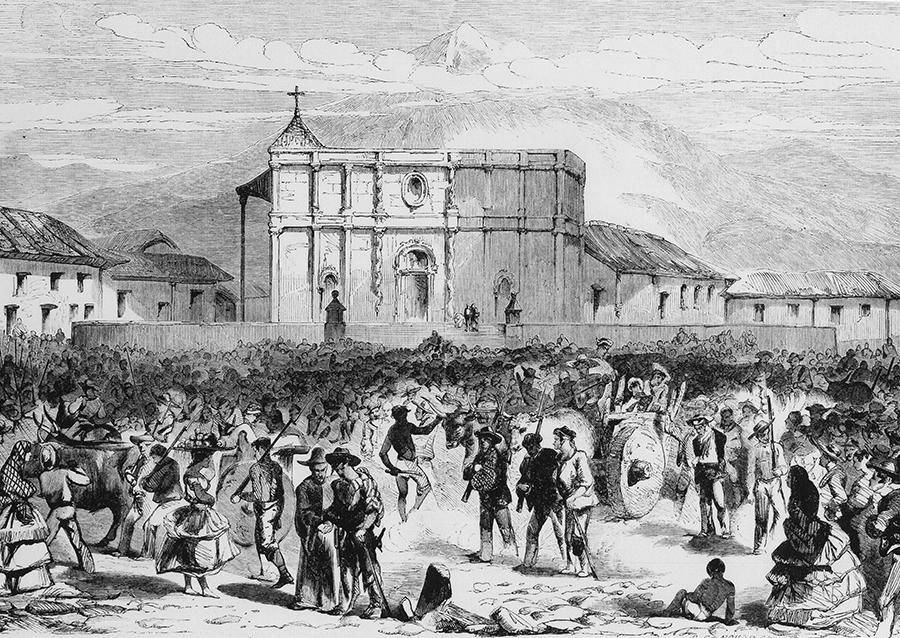
5. Challenges and Controversies
Opposition and Internal Conflicts
Juan Rafael Mora Porras’s presidency, despite his successes in defending Costa Rican sovereignty and his modernization efforts, was not without internal challenges, opposition, and controversies. During his administration, he faced significant political tensions, including disputes with members of the country’s political and economic elite. Some of these tensions were related to his modernization policies and efforts to centralize power, which provoked resistance from those who saw their traditional positions of influence threatened.
Fall from Power and Exile
The accumulation of internal conflicts and political discontent eventually led to Mora Porras’s fall from power. In 1859, he was deposed in a coup led by political rivals, marking the beginning of a turbulent period in Costa Rican history. After his overthrow, Mora Porras went into exile, seeking support from neighboring countries to regain power. However, these efforts proved unsuccessful, and in 1860, during an attempt to return to Costa Rica and restore his government, he was captured and executed.
The final years of Juan Rafael Mora Porras’s life were marked by struggle and exile, reflecting the volatility of Costa Rican politics at the time. His death was not only a blow to his supporters but also marked the end of an era in Costa Rican politics.
Mora Porras’s fall from power and his subsequent execution have been subjects of analysis and debate among historians. These events highlight the contentious nature of politics in 19th-century Latin America and serve as a reminder of the struggles for power and sovereignty that defined the region during this period.
For a detailed understanding of the challenges, conflicts, and controversies that Juan Rafael Mora Porras faced during his presidency, as well as the circumstances surrounding his fall and final years, it is essential to refer to detailed historical sources and academic analyses that address this complex period in Costa Rican history.
6. Historical Legacy and Reevaluation
Posthumous Recognitions
Despite his tragic end, the legacy of Juan Rafael Mora Porras has been the subject of numerous honors and recognitions after his death, reflecting his lasting importance and contribution to Costa Rica. Over the years, his figure has been reclaimed as that of a national hero, with monuments erected in his honor and his name given to schools, avenues, and public squares. The day of the victory at the Battle of Rivas, where Juan Santamaría, a soldier under his command, became a national hero, is celebrated annually as a holiday, underscoring the impact of the National Campaign against the filibusters on Costa Rican national identity.
Long-Term Impact and Historical Reevaluation
Mora Porras’s figure has been evaluated and reevaluated by historians and Costa Rican society over time, with a perspective that has significantly evolved from his fall and execution to the present day. Initially, his overthrow and the circumstances of his death may have overshadowed his legacy. However, over the years, historiography and public opinion have increasingly valued his leadership during the National Campaign and his vision for a modern, sovereign country.
Contemporary historians have recognized Mora Porras not only for his crucial role in defending Costa Rica’s sovereignty but also for his efforts to modernize the country and promote economic and social development. His administration is seen as a period of significant transformation that laid the foundation for the country’s future development.
Furthermore, the reevaluation of his figure has led to a broader recognition of his contributions in various sectors of Costa Rican society, with him being seen as a statesman ahead of his time. His dedication to the well-being and progress of Costa Rica, even while facing significant internal and external challenges, has solidified his status as one of the country’s most prominent and respected leaders.
In summary, Juan Rafael Mora Porras is remembered and honored as a national hero, whose legacy continues to influence Costa Rican identity and pride. The evolution of his image over time reflects the complexity of history and the importance of revisiting and understanding the contributions of historical figures from a contemporary perspective.
For an in-depth exploration of Mora Porras’s legacy and how it has been evaluated over time, it is recommended to consult academic works and publications by renowned historians, as well as resources available in national archives and libraries specialized in Costa Rican history.
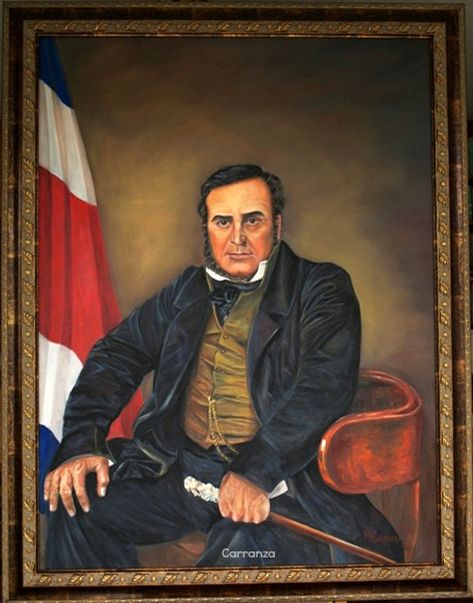
7. Mora Porras in Costa Rican Culture
Representations and Symbolism
Juan Rafael Mora Porras has been represented in literature, art, and the media in Costa Rica in various ways, each highlighting different aspects of his personality, leadership, and legacy. In literature, his figure has been the subject of study and reference in historical works, essays, and narratives that seek to explore and understand the depth of his impact on the country’s history. In art, Mora Porras has been honored through sculptures, murals, and other artistic expressions that seek to capture his essence and contribution to the nation. The media, for its part, has helped keep his memory alive through documentaries, reports, and educational programs that highlight his historical figure.
Influence on National Identity
Juan Rafael Mora Porras’s impact on the construction of national identity and the collective memory of Costa Rica is undeniable. His leadership during the National Campaign against the filibusters in 1856-1857 is considered a defining moment in the country’s history, an episode that not only consolidated national sovereignty but also fostered a sense of unity and national pride. Mora Porras’s figure, as the president who led Costa Rica through one of its greatest challenges, has become a symbol of Costa Rican courage, determination, and patriotism.
The annual celebration of Juan Santamaría Day, in honor of the national hero who fought under Mora Porras’s command, serves as a reminder of the significance of this period in Costa Rican history and of Mora Porras’s role in it. These commemorations, along with the inclusion of his story in educational programs, ensure that future generations understand and appreciate his contribution to the country.
Through these representations and the ongoing influence on national identity, the figure of Juan Rafael Mora Porras remains a pillar in the collective memory of Costa Rica, symbolizing the values of freedom, bravery, and unity that characterize the country.
The way in which Juan Rafael Mora Porras has been immortalized in Costa Rican culture and national identity underscores the profound respect and admiration that the Costa Rican people have for their former president and national hero. His legacy continues to inspire Costa Rica, reaffirming the ideals of sovereignty and courage in the face of challenges








